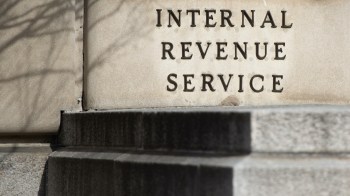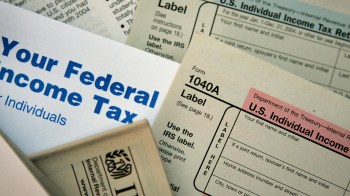Have you finished your taxes yet? If tradition holds, about a quarter of taxpayers still haven’t filed. Still, most of us get our taxes done on time and pay the bill.
Supreme Court Justice Oliver Wendell Holmes, Jr. famously rebuked a secretary for asking him, “Don’t you hate to pay taxes?” with “No, young fellow, I like paying taxes, with them I buy civilization.” He’s right, although that doesn’t mean it the price doesn’t pinch since taxes is by far the largest single component in the average family budget.
It seems that the price of civilization is falling for one group, however. April 18th could be the best tax day for the well-heeled since that 1930s. That’s a striking statement on its own. But if there was any doubt about the wisdom of comprehensive tax reform the latest cover story from BusinessWeek puts it to rest.
For the 400 U.S. taxpayers with the highest adjusted gross income, the effective federal income tax rate–what they actually pay–fell from almost 30 percent in 1995 to just under 17 percent in 2007, according to the IRS. And for the approximately 1.4 million people who make up the top 1 percent of taxpayers, the effective federal income tax rate dropped from 29 percent to 23 percent in 2008. The cover story lays out 11
That’s bad enough. It gets worse.
The true effective rate for multimillionaires is actually far lower than that indicated by official government statistics. That’s because those figures fail to include the additional income that’s generated by many sophisticated tax-avoidance strategies. Several of those techniques involve some variation of complicated borrowings that never get repaid, netting the beneficiaries hundreds of millions in tax-free cash…For those who can afford a shrewd accountant or attorney, our era is rife with opportunity to avoid, or at least defer, tax bills, according to tax specialists and public records.
Make more, pay less is bad tax policy.
The tax code is riddled with too many exemptions, deductions, exclusions, and credits. Billions of dollars are spent on accountants and lawyers. Billions of hours are spent struggling to fill out forms.
Will we ever get major tax reform? It’s intriguing that all the major federal budget-and-debt reform blueprints from Simpson-Bowles to Paul Ryan are built on a foundation of dramatically broadening the tax base by eliminating most deductions and credits. For example, take the Ryan proposa, according to this Bloomberg story.
Lowering rates that much while reaching the revenue targets in Ryan’s budget would require lawmakers to consider eliminating so-called tax expenditures, including the mortgage interest break and the deduction for charitable contributions, said Mel Schwarz, partner at the Washington national tax office of Grant Thornton LLP. Both have long been viewed as politically difficult to challenge.
A simpler tax code and lower rates would be far better than today’s Byzantine system.
There’s a lot happening in the world. Through it all, Marketplace is here for you.
You rely on Marketplace to break down the world’s events and tell you how it affects you in a fact-based, approachable way. We rely on your financial support to keep making that possible.
Your donation today powers the independent journalism that you rely on. For just $5/month, you can help sustain Marketplace so we can keep reporting on the things that matter to you.


















